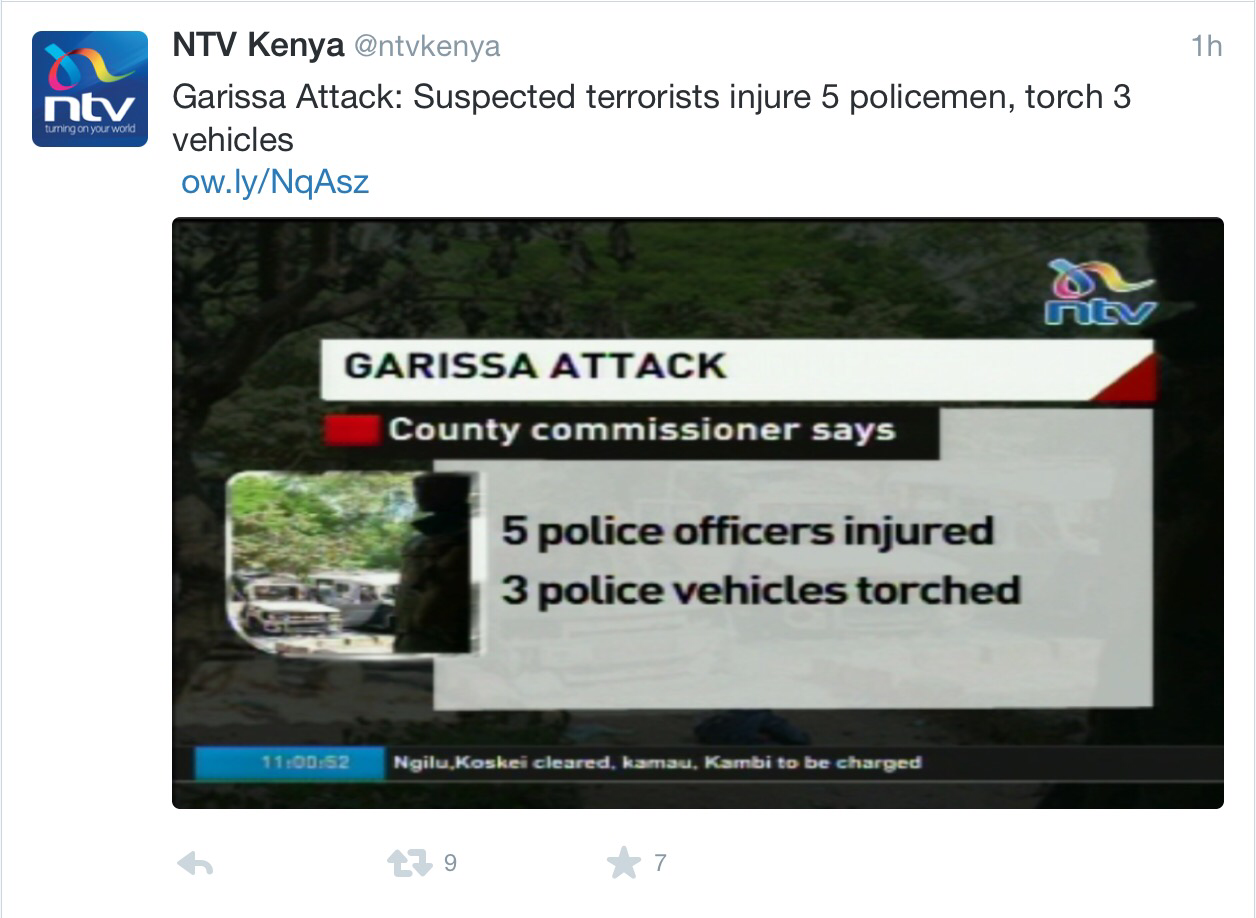Creating Mass-Mediated Fear Part 1
 I have followed conflicting news on the social media about a suspected Al-Shabaab attack on the police in Yumbis, Garissa. Some media houses have reported 5 police officers injured
I have followed conflicting news on the social media about a suspected Al-Shabaab attack on the police in Yumbis, Garissa. Some media houses have reported 5 police officers injured  While others have reported several officers dead. BBC reported that “20 Kenya police policemen feared dead after suspected Al Shabaab attack…” The reports in social media are even more conflicting. The Ministry of Interior has maintained that nobody has died and that only one police officer has been injured.
While others have reported several officers dead. BBC reported that “20 Kenya police policemen feared dead after suspected Al Shabaab attack…” The reports in social media are even more conflicting. The Ministry of Interior has maintained that nobody has died and that only one police officer has been injured.  This kind of reporting proves that public perception of the Al-Shabaab threat and the danger it poses seems to be disproportionate to their actual capabilities.
This kind of reporting proves that public perception of the Al-Shabaab threat and the danger it poses seems to be disproportionate to their actual capabilities.
Al-Shabaab is fighting a highly developed and complex form of psychological war which aims to accomplish political ends by bearing on our emotions and attitudes. I think they have managed to induce fear and worry that is more than the actual damage they have caused.
How important is this psychological warfare to Al-Shabaab’s goals? I do not claim to know what Al-Shabaab really wants but I do know, from widely circulated claims, that they want the Kenya Defence Forces out of Somali. Some Kenyans including key politicians have severally called for such an action.
I doubt that Al-Shabaab will leave us alone even if KDF left Somali. The truth is: Al-Shabaab wants to evoke reactions that imperil our young democracy.
Their strategic intent is to create huge numbers of psychological casualties by attacking key institutions, as they did in Garissa University College.
Contrary to what most Kenyans think, Al-Shabaab’s most important weapons are not guns or bombs but rather the uncertainty, fear, and alarm that their attacks and threat have produced. It will be wrong to even imagine that Al-Shabaab have a military capability matching ours, they depend upon the strategic benefit of inciting a perception of vulnerability that far exceeds realistic dangers, an aim that depends heavily upon mass media publicity.
They have undermined our sense of security, disrupted our everyday life, and managed to sway public opinion by creating what Ganor calls “an unremitting, paralyzing sensation of fear”
 This kind of heightened environment has led to political disaffection and diminished confidence in our government. They have driven us to a corner where Kenyans feel that they have to either choose continued terrorism or giving in to Al-Shabaab’s demands.
This kind of heightened environment has led to political disaffection and diminished confidence in our government. They have driven us to a corner where Kenyans feel that they have to either choose continued terrorism or giving in to Al-Shabaab’s demands.
 Judging by the reactions of Kenyans, it seems that Al-Shabaab has won round one.
Judging by the reactions of Kenyans, it seems that Al-Shabaab has won round one.
